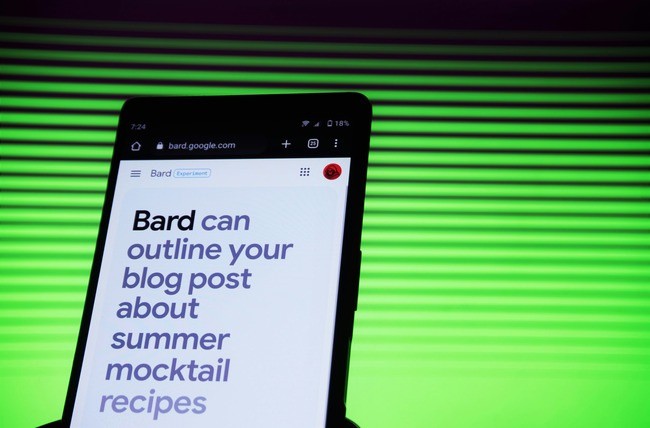
In the rapidly evolving world of smartphone technology, this year's Android and iPhone updates are marked by a significant influence of artificial intelligence (AI), particularly from Google. Even though AI integration into popular apps is growing, all users should heed the important warning that calls for a reevaluation of our phone using habits.
It is now possible for generative AI to appear in smartphone apps on a larger scale than ChatGPT did the previous year. But there's a big catch to this fascinating technological development: there's a big risk to user security and privacy.
Google Warns Users About Privacy Risks in AI Chatbot Interactions
The blind spot emerges when interacting with generative AI chatbots. Users often exercise caution when it comes to app installations, permission grants, browser choices, and data sharing with major platforms like Facebook and Google.
However, a lapse occurs when engaging with AI chatbots, as users find themselves immersed in what feels like a private conversation with a helpful companion, inadvertently oversharing.
Despite the apparent friendliness, it's essential to recognize that these chatbots serve as a gateway to a multi-billion-dollar computing ecosystem, primarily driven by advertising and data brokering.
Google, cognizant of the potential risks, has issued a stern warning to Android and iPhone users. It urges users to refrain from sharing confidential information during conversations, emphasizing that the data collected is utilized to enhance products, services, and machine-learning technologies. Notably, Google assures users that Gemini Apps conversations are currently not utilized for targeted ads, with a commitment to transparently communicate any future changes.
The privacy concern lies in the aftermath of interactions with AI chatbots. The questions posed and responses received are stored in a record that can be retrieved and reviewed, raising the risk of unintended data exposure.
As standalone AI chat apps gain popularity, Google highlights the implications of integrating these apps with other Google services. Data sharing practices will be aligned with the policies of the respective services, introducing additional layers of privacy considerations.
The emerging risks associated with generative AI are gradually coming to light. In the realm of messaging, Google's Gemini (formerly Bard) has drawn attention for its request to review past private messages, potentially compromising the context and content for its suggestions, and breaching end-to-end encryption.
The underlying issue here is the off-device, open storage of data, with Google disclosing default storage periods of up to 18 months. Users can adjust this setting, but the need for heightened awareness regarding data privacy in the era of AI-driven technologies is evident.
As the landscape evolves, users are urged to exercise caution and stay informed about the implications of their interactions with AI chatbots.
Replacing Google Assistant with Gemini Raises Skepticism and Privacy Concerns
Google's decision to replace Google Assistant with the next-gen generative AI chatbot, Gemini, has sparked skepticism and confusion among users. While Google Assistant has been a reliable on-demand assistant focused on task efficiency, Gemini introduces features like generative text and image creation that seem out of place in this context.
The downgrade is evident as Gemini performs routine tasks slower and less reliably, lacking the core functions users expect. Privacy concerns arise due to Gemini's data storage practices, potentially storing information for up to 18 months, raising questions about accuracy and reliability.
The misalignment of purpose becomes apparent as Gemini's generative capabilities, while useful in specific contexts, are unnecessary for traditional assistant tasks. This move prompts a philosophical question about the industry's rush to integrate AI-whether it genuinely addresses user needs or follows trends.
Google's implementation of Gemini as a replacement for Google Assistant appears questionable from both user and philosophical perspectives, highlighting concerns about losing sight of the core purpose of an on-demand assistant and succumbing to industry trends over user-centric innovation.
© Copyright 2025 Mobile & Apps, All rights reserved. Do not reproduce without permission.

















